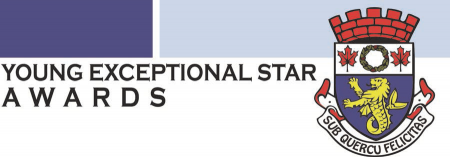Community Blog
Bill 20 – Local Elections Campaign Financing Act
Yesterday I rose in the house to give my qualified support to Bill 20. While this bill is part of a two-step process to reform municipal elections financing, many, including me, wished that it had also brought in donation limits prior to the 2014 municipal elections. Just prior to me speaking, Linda Reimer, MLA for Port Moody-Coquitlam and Parliamentary Secretary to the Minister of Community, Sport and Cultural Development spoke. She noted:
All of the [Local Government Elections] task force recommendations are being implemented in this legislation, with the exception of those expense limits. They will be addressed in the second phase and implemented for the 2018 local elections. Expense limits set a maximum amount of money that candidates, elector organizations and third-party advertisers in local elections can spend on election campaigns.
The Local Government Elections Task Force recommended that expense limits be established in local government elections but didn’t recommend what the limits should be. We fully intend to put in place expense limits, but we felt it would not be appropriate to add expense limits to the mix of the significant reforms that we already have in place in an election year. UBCM supports this two-phased approach.
The first phase is the legislation that we introduced already. The legislation, as I said previously, represents the most significant reforms to local government in more than 20 years. And of course, the second phase will be our expense limits.
Below is the text of my speech. Please note that I believe it would be in everyone’s interest i government brought in financing limits this years fall sitting (if it is after the municipal election) or, at latest, spring 2015.
I rise to offer a few initial comments on Bill 20 with a wicked cold. I would much rather be in bed today, but I felt this was an important bill to speak to as we move to municipal elections this fall.
I recognize that the Local Elections Campaign Financing Act makes many needed changes in our local elections system. I was very happy to see that the legislation included further clarity around disclosure requirements and third-party advertising sponsorship. The added authority to Elections B.C. is also a welcome step in improving our democracy.
One noticeable absence in this bill, as alluded to by a number of previous speakers, is reform to the municipal spending limit for municipal elections. Now, I recognize the arguments put forward by the previous member with respect to the fact that the committee did not make recommendations on specific amounts, but the reality is that this is what people want. It’s been an ongoing issue for many years, and my main critique of this legislation before us today is that such spending limits are not included.
The government has had many opportunities since the Local Government Elections Task Force introduced its recommendations for improving local democracy in 2010, yet it still has not acted to limit campaign expenses.
Here’s a specific example. If we look at the numbers from Vancouver’s 2011 election, we see that Vancouver’s mainstream municipal parties collectively spent $5 million. That’s roughly $12 for every eligible voter. Now, compare that with Montreal, where candidates can spend 30 cents per voter, or Toronto, where candidates can spend 85 cents per voter. I think it’s pretty clear the difference — an order of magnitude difference.
It’s important that we take steps to limit the extent to which money can currently impact our municipal election results. Just as in the provincial system, in municipal elections people vote, not unions or business. It’s really time that we follow the lead that was set by our federal government in terms of putting campaign limits and also banning the donations from union and business interests — vested interests, I might add.
Because whose interests are ultimately served? Is it the voter, or is it the person with the biggest paycheque? Sometimes it seems to me that it’s the person with the biggest paycheque, and if that biggest paycheque is unbounded, the person with the biggest paycheque is the wealthiest person.
It’s particularly important in the context of this newly proposed four-year municipal election cycle. Some have argued that extending the term lengths for elected officials without introducing spending limits further tilts the balance of power in favour of those who can spend the most. While there certainly are merits for elected officials having a longer term in office — I support that — it’s perhaps unfortunate that this proposed extension comes at a time when one of the largest issues facing local government elections is campaign spending.
Of course, I want to recognize that it would have been impractical and even somewhat unfair to introduce legislation that would change campaign spending protocol during an election year, but I come back to the fact that the government has had quite some time to actually develop this legislation.
That being said, the people of British Columbia need some certainty that this government intends to follow through with its promise and cap election spending before the next local election. To that effect, I am pleased to hear the speech by the previous member. The previous member spoke to the fact that this would, in fact, be the case.
The government has had a number of years since the task force recommendation. It’s time to act expediently to bring these changes forward. I look forward to hearing from the government regarding the timeline for bringing in these reforms and will withhold further comments until the committee stage.
The Portland Hotel Society – An Update
In Committee A on Thursday, April 3, the Budget Estimates debates for the Housing Ministry were up. I had the opportunity to question the Minister, Honourable Rich Coleman, on a topic that I felt deserved to be explored more thoroughly. In particular, I was concerned that as a result of the recent controversy surrounding the Portland Hotel Society, the extremely important programs offered by this society would suffer. If this were to happen, the most vulnerable in our society would be those who ended up being hurt the most by the scandal.
As noted in the questions and answers extracted from Hansard and reproduced below, the Minister offered very reassuring responses that clearly indicate that the Portland Hotel Society’s programs will continue to operate, albeit under different management and a new Board.
Question 1:
A. Weaver: I have a couple of questions. First off, I’d like to apologize to the minister and the critic. I had not planned to ask Housing questions just because so much is going on at the same time, but I did want to ask just a couple of questions on a topic that I think needs to be addressed. These are pertaining to the Portland Hotel Society.
I’d like to acknowledge first off that it’s clearly been noted that a vast majority of the projects supported by this B.C. Housing do excellent work and are highly accountable. I also know that everybody is trying to ensure that we learn from the mistakes that happened and is trying to remedy these mistakes at the Portland Hotel Society.
Nevertheless, I have a couple of quick questions. First, if the minister is able to let me know, what is the allocated budget for the Portland Hotel Society in this fiscal year?
Answer:
Hon. R. Coleman: The budget we’re providing to that particular society this year would be approximately $9 million from Housing and about $9 million from Health.
Question 2:
A. Weaver: I’m wondering what steps the minister is taking to ensure that the mismanagement of public expenses at the Portland Hotel Society — not only the hotel society but potentially other housing societies. What account, what steps are being taken to ensure that mismanagement will not occur in the future?
Answer:
Hon. R. Coleman: I don’t want this discussion to leave any question that all of a sudden every non-profit society in British Columbia isn’t operating properly in housing. We have about 500 societies we do business with. They operate either, in some cases, in one building and sometimes multiple buildings. Sometimes they have other relationships in government with regards to social services or health.
Basically, the first thing I want to do is give the typical review process for the member, because this is what drives where we get to. I will say this: in this case, this is the most egregious anomaly that I have ever seen in housing in British Columbia, what went on at the Portland Hotel Society with regards to — not the services to the client but the poor management, the arm’s-length decisions that actually were interrelated with people, family, relatives and friends on social enterprises that weren’t profitable and ended up having to be subsidized, and the egregious spending with regards to some luxurious trips where people are actually donating to an organization where this should never happen.
I can tell you that they are an anomaly on that file, but here is the typical review process. B.C. Housing, a non–profit housing provider — I can give this to members; you don’t have to write it down — prepare and agree on a budget for the upcoming fiscal year on an annual basis. Our staff sit down with every society, go over their budget from the previous year, and set up a budget. Once the fiscal year is over, the auditor would require the non-profit providers to submit an audited financial statement. So they can have a bookkeeper, somebody doing their books all year long. Their books then have to go to a separate auditor, a chartered accountant, to do an audited financial statement. We review the financial statements and budgets to the budget versus actual on an annual basis for each one of these organizations.
Based on that review, we will make adjustments to the budget if it’s required, or we can sit down and talk to them about a range of some minor changes or further discussions, specific financial or operational costs that need to be improved. It’s an ongoing working relationship to make sure we’re all doing a good job.
The housing providers implement the changes that we recommend to them, and B.C. Housing follows up to ensure changes are made. So that’s what we do. This is how we operate this.
If changes are not made and the concerns continue to escalate, then we will escalate action based on the issues of the breaches that are noted. If we think that somebody is, for instance, not managing their maintenance account very well or their capital reserve has been misspent, and if they continue to do that, there could be a number of things. We could come in and sit down with the board and say: “You’re not doing your fiduciary duty. You need to improve this.” We can sit down with the management and help them improve their management practices and accounting. But we work with these guys, recognizing that in many cases…. All of these boards are volunteers, and so we recognize the personal commitment they have made to their communities.
When it really goes outside of that relationship not working, that’s the only time escalation would include a B.C. Housing internal audit team or a third-party auditor going in and taking a look at the books, which was the case of…. Every one of those steps actually happened on Portland. The Portland Hotel Society were audited in 2002. We initiated a third-party audit of the society then after the regular oversight process identified some operation and financial issues. One of the things that was taking place at the time is their accountant had passed away. There were some concerns because there were issues with their books. A third-party firm at that time went in, were brought in, to conduct an audit. Upon completion of that audit, B.C. Housing and the Portland Hotel Society took the required actions to implement the recommendation. So they actually did what they were told to do back in 2002. They went through and basically did their thing.
We’ve asked the new board, even with accounting for privacy rules, if they could please release that audit. But at the time, when we looked at releasing it back then, we weren’t allowed to under protection of privacy issues.
Those recommendations in that audit were implemented immediately. For the next number of years, the audited financial statements every year was matched up to the budget. There were no issues with the spending or concerns that were flagged until about 2010, when we started to see a small deficit.
That brought us through a number of processes and audits in a period of time up to the date that we actually we had to do the unfortunate thing that we had to do with the Portland Hotel Society and basically change its management and its board. It was either do that or take it into receivership and take it over financially.
Question 3:
A. Weaver: Thank you, minister, for that answer. My concern for this is the services that the society provided. My final question is: what steps in this budget is the minister taking to ensure the essential services such as Insite, the safe injection site, are actually sustainable for the community that the Portland Hotel Society served?
Answer:
Hon. R. Coleman: That’s a very fair question. You go through this unfortunate process, but you do have people that work for this society and units they manage. And they have the services and programs they deliver for both health and for housing that work and, quite frankly, are doing valuable work with the some of the hardest to house and hardest people in the community.
The arrogance of the people that were their bosses doesn’t mean…. It should not reflect on their concern and love for the people that they actually deal with every day. So what we did to make sure that this is stable and controlled is….
We had three options in front of us. One, to have the executive, the management team, resign and replace the management team and have the board resign and replace the board.
Two was to say: “In cooperation, because we’re not going to fund you anymore, if you don’t agree with these changes, you’re in receivership. You have two issues in and around receivership. You can accept it, or you can challenge it in court. If you wish to do either one of those, we will pursue it either way.” They chose to leave, which is better for the society, because it does have members that are members of the society and who, I think, were a part of a valuable thing that was happening for the people that were the clients of the organization.
Today, what we’ve done is we’ve gone in and put in a new board. We have a chair, Faye Wightman, who used to be the head of the Vancouver Foundation, on the board. We have, Ida Goodreau, who used to be the CEO of Vancouver Coastal Health Authority, on the board.
We brought in Jim O’Day. I’ve known Jim for decades. He was actually at one time the chair of B.C. Housing, a number of years ago. He has quite a good reputation on working with societies for developments and stuff like that, in that field.
Then there is Andy Broderick from Vancity and four other people. We brought in very good, high performing people to be volunteers on this board.
Then we went in and said, “Well, now the management’s gone,” so we took a senior management from B.C. Housing and the senior manager from Health, who now run the Portland Hotel Society operation.
In addition to that, we brought in Deloitte to basically be the accountant within the society to take a look at all the documentation and all the receipts that led up to this thing so that we’ll have any concerns there but also, obviously build a long-term financial plan for the sustainability of the society.
We will look at all of these social enterprises that basically were put in place by Portland, arm’s length to any funding we gave, but they were cross-subsidizing and it led to some of the deficit problems, because they weren’t well run or they had interrelationships that should not have existed in an organization like this.
We will analyze all of that and determine which ones are sustainable, which are not, which ones make sense, which…. You know, if it’s a painting contract to a friendly company owned by somebody that’s friendly, then we’re going to let that contract go out for bid, and they can all bid on it. That sort of thing, right? There will be competition brought in and some accountability to those expenses.
We’re in the process right now of selecting an interim CEO — sorry, an executive director and a director of finance for the organization so that…. We obviously don’t want our senior managers having to run Portland in the long term. We will go through with a restructuring of the management. Then, in addition to that as we go along, we will eventually transition the board back to some community members as well, who will part of the long-term board.
That’s basically the structure we put in place to protect it. Obviously there will be some changes on the fiscal side at Portland Hotel Society. There won’t be any trips down the Danube or limousine cruises to concerts or trips to Disneyland, you know, those types of things really raised the ire, quite frankly, of the public and unfortunately damaged the great reputation of so many good societies that do work in British Columbia, including the Downtown Eastside.
You could go through these other organizations who do the same accountability process, as I described, every year — they’re audited financial statements — who work with us. You can improve the management. You can always get a situation with a society where there’s some little management glitch that needs to be improved. We work with them to solve those problems and to improve their ability to manage, because that’s part of the education management process when we’re the funder and the holder of the operating agreement with them.
I think that we’ve done…. I shouldn’t say “we.” The folks at B.C. Housing and the folks at Health have done an exceptional job dealing with a very difficult problem. At the end of the day, we did so in such a way that we had the compassion and concern for the very difficult clients that the Portland Hotel Society serves. While we’re doing that, we’re protecting the integrity of the non-profit sector and moving on to get to where this society will have a long-term viability as well
Clearing the Air — MLA Travel Expenses
As promised, I have been posting my office expenses (both for the constituency and legislature offices) quarterly on the front page of my website since I was elected. In fact, I have been posting my travel expenses there as well. Recently there has been some media attention concerning “Accompanying Person” travel expenses.
MLAs are allowed 12 Accompanying Person trips per year. The policy is quite clear as to what constitutes an accompanying person.
To qualify for official party status in the legislature, a party needs to elect four MLAs. As the only elected BC Green Party MLA, I am formally considered an Independent in the Legislature. I am afforded a legislative budget that allows me to employ two full time and one half-time staff person. These staff are critical in terms of assisting an MLA fulfill his or her duties.
As noted by the CBC (see * below), my Accompanying Person travel was $4,053 last year. For those interested, my expenses as already listed on my website were $1092.00 during the first and second quarter and $2961.00 during the third quarter of 2013. All accompanying person travel was for my legislative assistants.
Trips 1 and 2:
Two legislative assistants accompanied me to the Union of British Columbia Municipalities 2013 Convention in Vancouver during September 2013.
Trip 3:
A legislative assistant accompanied me to the 2013 BC Energy Conference in Fort St. John during October 2013. We also toured the Farrell Creek fracking site, the Peace River Valley and the proposed Site C dam location. We also met with a variety of local officials and community leaders.
Trip 4:
A legislative assistant accompanied me to the 2013 Clean Energy BC conference in Vancouver in October 2013. There we had a number of meetings and I gave the closing plenary.
Trip 5:
A legislative assistant accompanied me on a visit to Prince Rupert and Kitimat in December 2013. The purpose of this trip was to meet with local mayors, LNG proponents, other industry and the Prince Rupert Port Authority.
* The initial version of the CBC story incorrectly indicated spending under the Accompanying Person Travel Expenses category was limited to trips taken by MLAs’ spouses. In fact, MLA spending under that category can be used for staff travel as well
Crowdsourcing with PoliSourceBC
As the MLA for Oak Bay Gordon Head, I am always seeking innovative ways of canvassing the opinions of my constituents, as well as British Columbians from across our province, on important issues facing us all. Building upon our public outreach and engagement efforts to date, we have launched a page on PoliSourceBC, a new crowdsourcing platform.
As we move forward, I will be conducting numerous polls on emerging topics. My goal is to get a sense of where people stand on issues that potentially affect them. By asking you to provide your postal code, we are able to break down the responses by region.
Our first poll concerns the transport of diluted bitumen in tankers on BC coastal waters. To vote, please click here.
Young Exceptional Star Awards Nominations
The Municipality of Oak Bay Child and Youth Committee (OBCYC) is proud to announce that nominations are now being accepted for the 7th Annual Young Exceptional Star Awards (YES Awards). These awards recognize the accomplishments of youth from grades 6-10 in the Oak Bay area. Students who attend schools in Oak Bay or those who have an Oak Bay address, but are attending a public or private school outside of the municipality of Oak Bay as well as those who are receiving a home school education are all eligible for consideration.
The goal of the awards is to emphasize the positive achievements of Oak Bay’s young people by recognizing those who have distinguished themselves in such areas as volunteerism, arts, citizenship, academics, athletics and/or who have overcome obstacles to achieve their goals.
Mayor Nils Jensen believes Oak Bay is fortunate to have so many outstanding young people who aspire to make a difference by contributing in positive ways within our community. “The YES awards are a great way to recognize youth in Oak Bay, and encourage them to continue to make a positive contribution to the community. These youth send a message of hope to the community that the next generation is full of promise, and inspire us all to do our part to make a difference.”
Recipients will be recognized at an awards banquet to be held on May 7, 2014.
Nominations must be returned by March 7th, 2014 to Councillor Michelle Kirby, The Corporation of the District of Oak Bay, 2167 Oak Bay Avenue, Victoria, B.C., V8R 1G2, or faxed to 598-9108. Questions or comments can be directed to Mary Kelly at mkelly@sd61.bc.ca.
Please click here to view the Nomination form.








